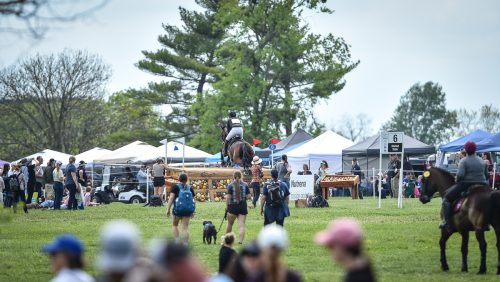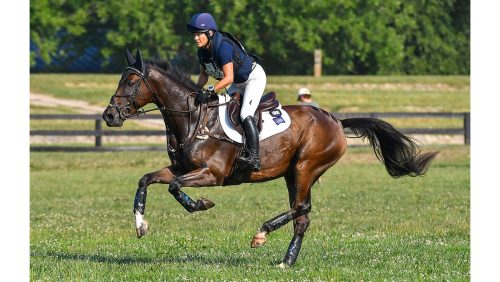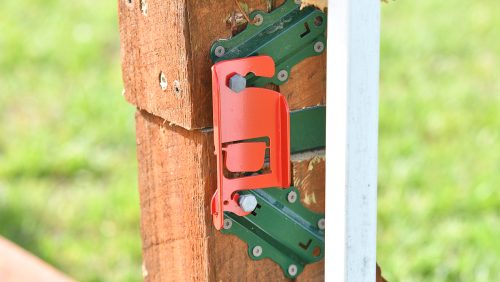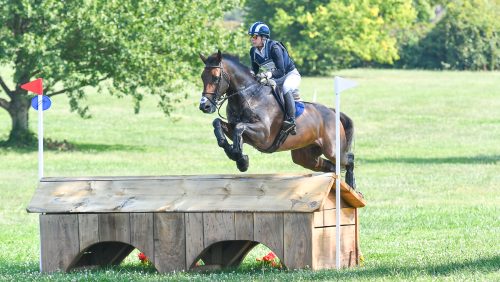My mother and I share a first name, Erna, and a passion for riding. We have spent nearly my whole life orbiting each other’s equestrian pursuits. In many ways, we’re incredibly lucky to be able to share such a labor- and time-intensive sport, and given how dedicated we have both been to riding over our lives, it may come as a surprise that it took 37 and 66 years, respectively, for the two of us to hitch up a trailer loaded with horses of our own, and make our way to a venue together. But that’s exactly what happened this summer when we went to the USEA Area VI Adult Rider Camp South at Twin Rivers Ranch in Paso Robles, California.
My mom, Erna P. Adelson, grew up riding competitively in South Carolina, but traded her breeches for power suits in the 1980s. She moved to New York City for a career on Wall Street and a family raised in the New Jersey suburbs. I inherited the horse gene and was enrolled in riding lessons and an equestrian summer camp, but we didn’t own horses until she relocated to San Diego for a job the summer I turned 18. While she and my father built their own barn and arena on their 18-acre property, I was away at college in Santa Barbara, where I volunteered at a barn in order to earn saddle time. When I moved to Los Angeles for my own career, I was fortunate enough to find a home as a volunteer exercise rider for hunter/jumper trainers Traci and Carleton Brooks.
Meanwhile, my mother acquired a couple of former race horses and returned to riding competitively, this time as an eventer. She attended the Area VI Adult Rider Camp for the first time in 2018, trailering the eight hours from San Diego to Paso Robles, California, all by herself. She arrived knowing no one, and I remember her returning that year with a renewed love and commitment to the sport, in no small part due to finally feeling like she had found her tribe in the women she met there.
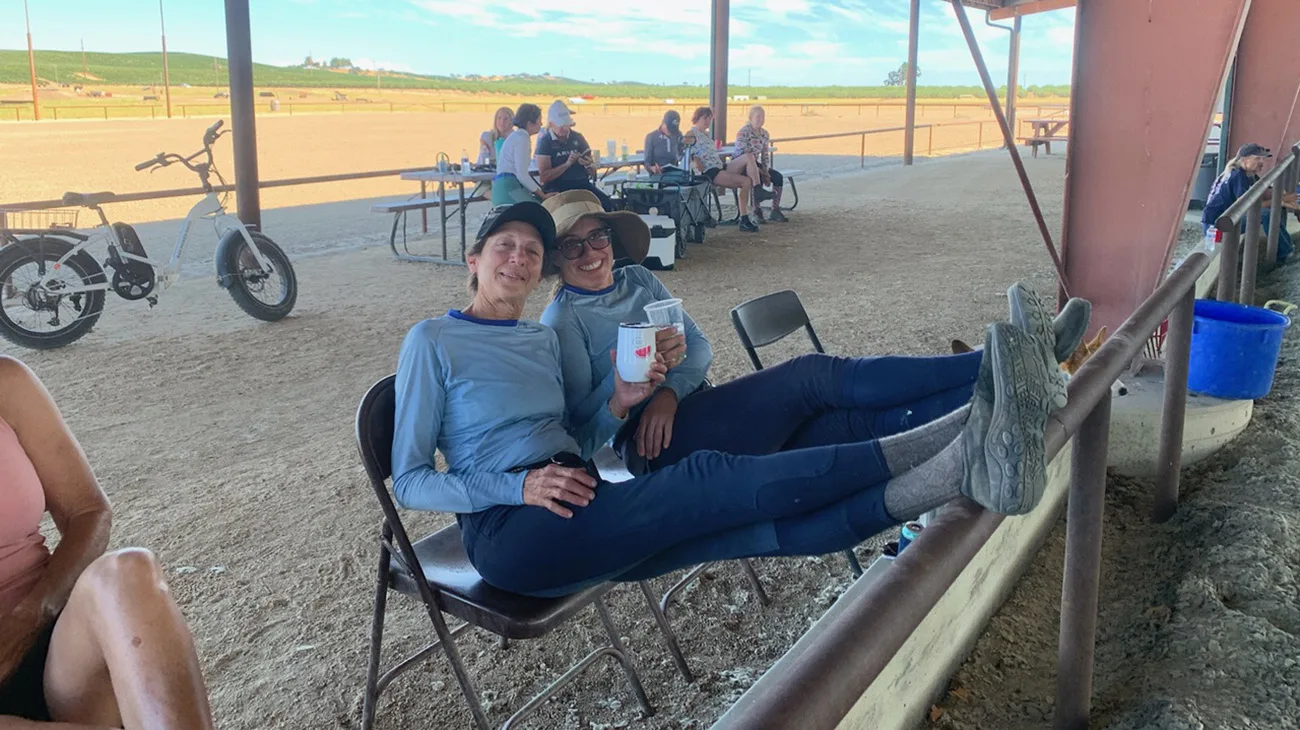
In 2021, after a year of working remotely, my husband, newborn son and I left L.A. to be closer to my parents. I started taking riding lessons again a few months later, and, inevitably, a newly restarted OTTB crossed my path. The flaming red mare, Jockey Club registered as Naughty Sophie, became mine, and I moved her to my parents’ place in 2023 with the goal of joining my mother in eventing. In many ways, we’re luck to share this passion. But we had picked up some very different learning styles along our wildly different journeys, and we didn’t immediately hit it off as barn mates. Luckily, before we found ourselves in a true high-pressure situation, we went to camp together.
In the case of Area VI, the Adult Rider camp is run just like a Young Rider camp, but for about 30-35 adult amateurs between the ages of 30 and 70. The Southern California chapter was started by Suz Roehl, who wished to see a camp like the one she had attended in Northern California more accessible to central and southern California riders. She volunteered to organize the clinic 15 years ago, and more recently passed on some of the responsibilities to the current Area VI South adult rider coordinator, Sharl Talan.
“I wanted people to have fun, be who they are, and not have to worry about impressing people,” said Suz, who brings a rolling cocktail cart ringside and makes up fun prizes for attendees. A full-time EMT trainer outside of her eventing career, Suz has the wisdom of a seasoned teacher, and knows from experience that “you can be serious about what you do, but you can also have fun while you learn.”
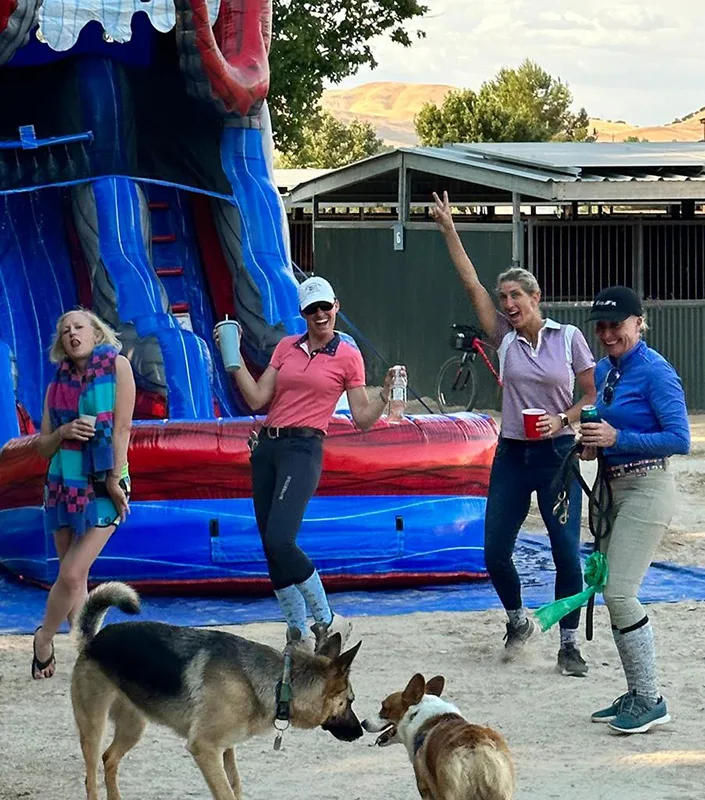
Twin Rivers has hosted the camp for the past several years, so the clinicians are usually the resident training duo of Bec Braitling and Andrea Baxter. With Braitling on a European tour this summer, four-star rider Kaylawna Smith-Cook, daughter of Area VI’s most prominent talent, Tamie Smith, filled in. The program consisted of three days of instruction at levels ranging from intro to modified.
On the first day, we did gridwork so the trainers could assign us to groups for the subsequent days of stadium and cross-country classes. Almost immediately, I had to reevaluate my goals for the weekend. I was hoping to tackle some beginner novice cross-country, but my handful of lessons over the past several months wasn’t going to cut it. Sophie and I joined the intro cohort, where we focused on maintaining rhythm and straightness in between obstacles. My mother, also riding a self-produced OTTB, ran up against the limits of her mount’s braveness while attempting some of the trickier modified lines.
ADVERTISEMENT
Like us, other riders experienced ego checks, as weaknesses were sussed out and insecurities flared under the keen eyes of our coaches. There were plenty of stops, bobbles and rails down. But instead of the relief you might feel at a horse trial when someone else in your class makes a mistake, at adult camp, everyone is rooting for each other. When the coaches commented on a better line, a more relaxed horse or a more thoughtful approach to a cross-country question, we all felt the elation for that rider.
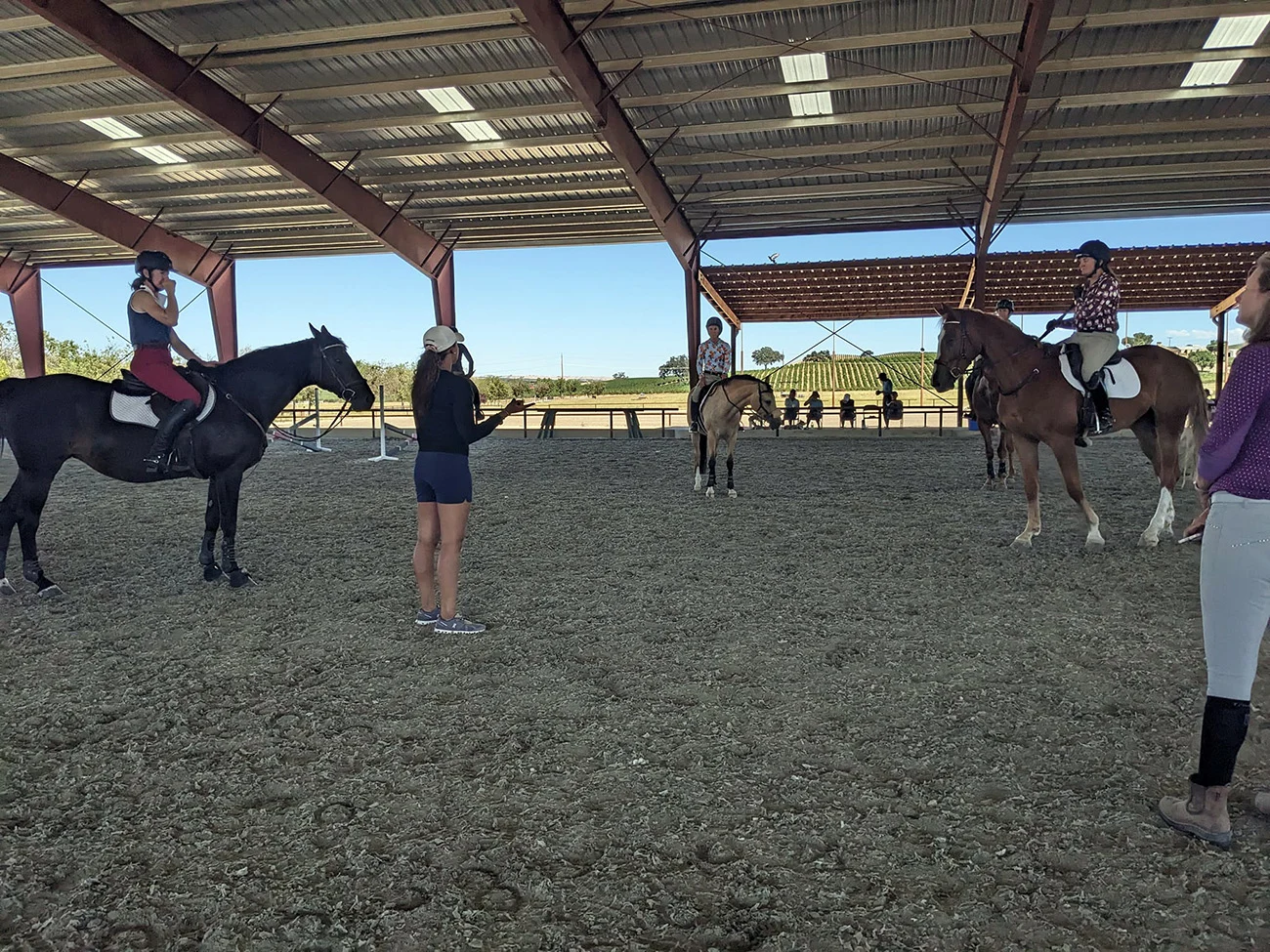
“There’s really so much energy to be gained from being around people who are all so dedicated to this incredibly challenging and rewarding sport,” said Joanne Belonsky, a filmmaker from Los Angeles who attends camp with her 20-year-old Thoroughbred, Buck. “We’ve all known the heartbreaks and the struggles of eventing, so there’s a sense of being in it together. I learn so much when I’m riding, and then I learn so much about everyone around me.”
Indeed, watching the other groups ride, I picked up tons of information about what to look for in a successful eventing partnership, including things like softness, quiet riding, pace and adjustability. Having three consecutive days with the same trainers gave us time to address demons and witness improvement, and to study other riders outside of a competitive environment.
As a rider new to the sport on a green horse, having an empathetic group around me bolstered my confidence in my new partnership, even when we made rookie mistakes. That kind of support can be hard to find regularly as an amateur, even for those who ride in full-time programs.
Another first-time camper, Nancy Emsley, of Temecula, came with an OTTB she hopes to move up to training level. Though she has also experienced what I call “amateur imposter syndrome” at home, “the Area VI Adult Camp was a game-changer for me,” she said. “As an adult amateur with a full-time job, riding an OTTB in a barn full of upper-level riders on very impressive horses, it can be difficult to feel like I have a place in our sport anymore. I left camp re-energized and with a newfound passion for our sport. It was amazing to meet and ride with like-minded adult amateurs, all focused on helping themselves, helping their horses, and helping their fellow campers succeed.”
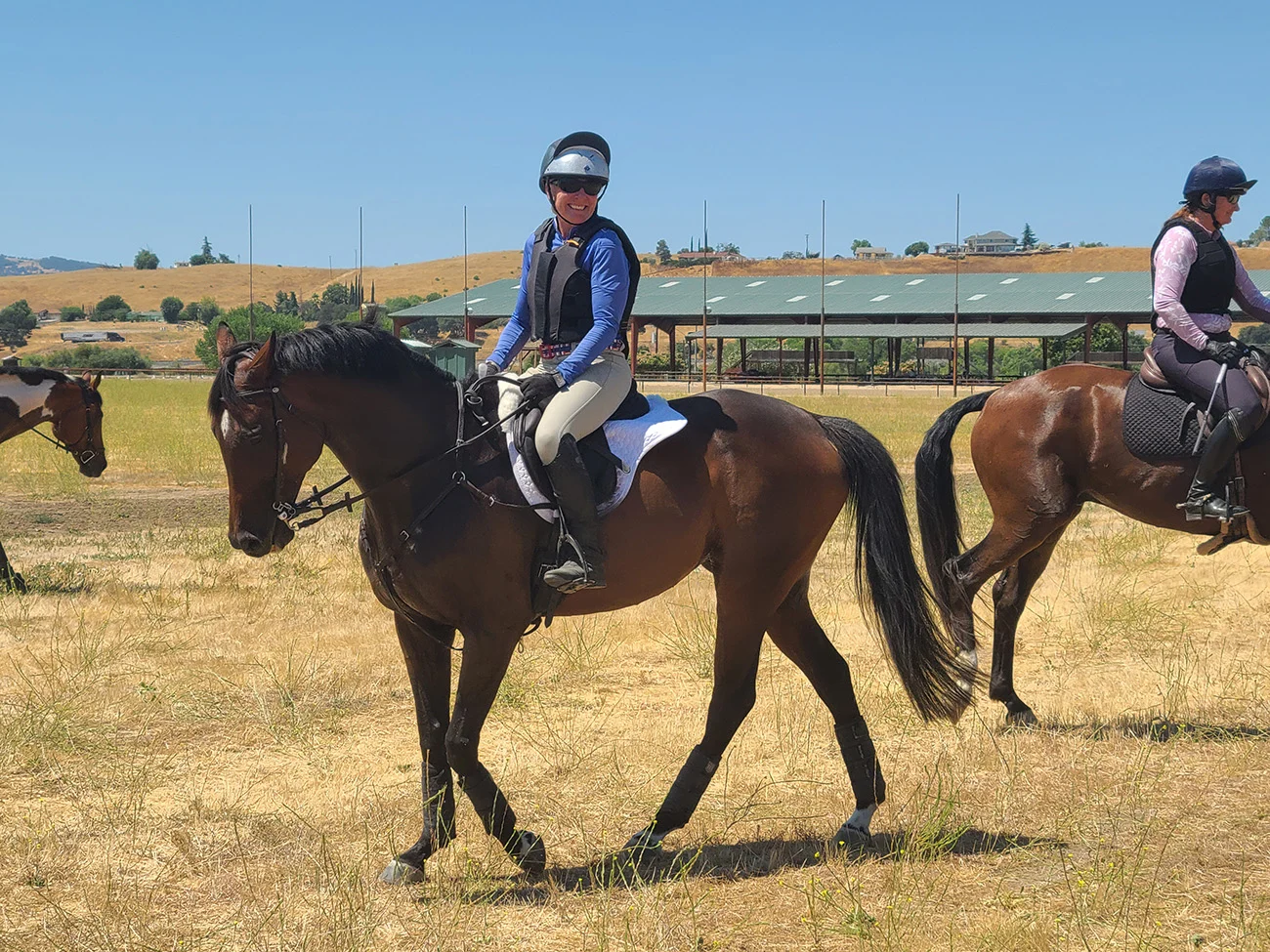
Like my mother, who came back from her first camp experience excited for her next opportunity to see other riders like her, attending camp also gave other amateurs renewed interest in competing. Barbara Slaughter, of Danville, who has ridden through preliminary on her horse, Diego, said knowing fellow campers are in her division helps keep her show nerves in check.
“The incredible friends that I’ve made through camp is what keeps me working my tail off to be able to play the game,” added Elyse Rowley, an equine vet tech from Arroyo Grande who has made the trip to adult camp for the past five years.
Talan, the adult camp organizer, said she also still learns about her own strengths by being a part of the camp.
“I never cease to be amazed by the women who come together for this weekend” she said. “Through meeting everyone, and having this shared experience, I have learned to trust myself, to forgive myself and to dig deep and believe in my own resiliency.”
ADVERTISEMENT
While participants have to be registered as adult riders through the U.S. Eventing Association to attend camp, they don’t need to have competitive goals for the experience to be worthwhile. Heather MacKenzie, who brought her steadfast Shire cross, Bonney, out of semi-retirement for the weekend, ended up being my biggest encourager as Bonney showed “Sophie” the ropes on the intro cross-country course.
“Being at adult camp gives me a chance to revisit the best parts of childhood,” said MacKenzie, who made the trip from Marin County. “It’s unhurried time with your horse and your friends—and as an adult, how often do we get to experience that?”
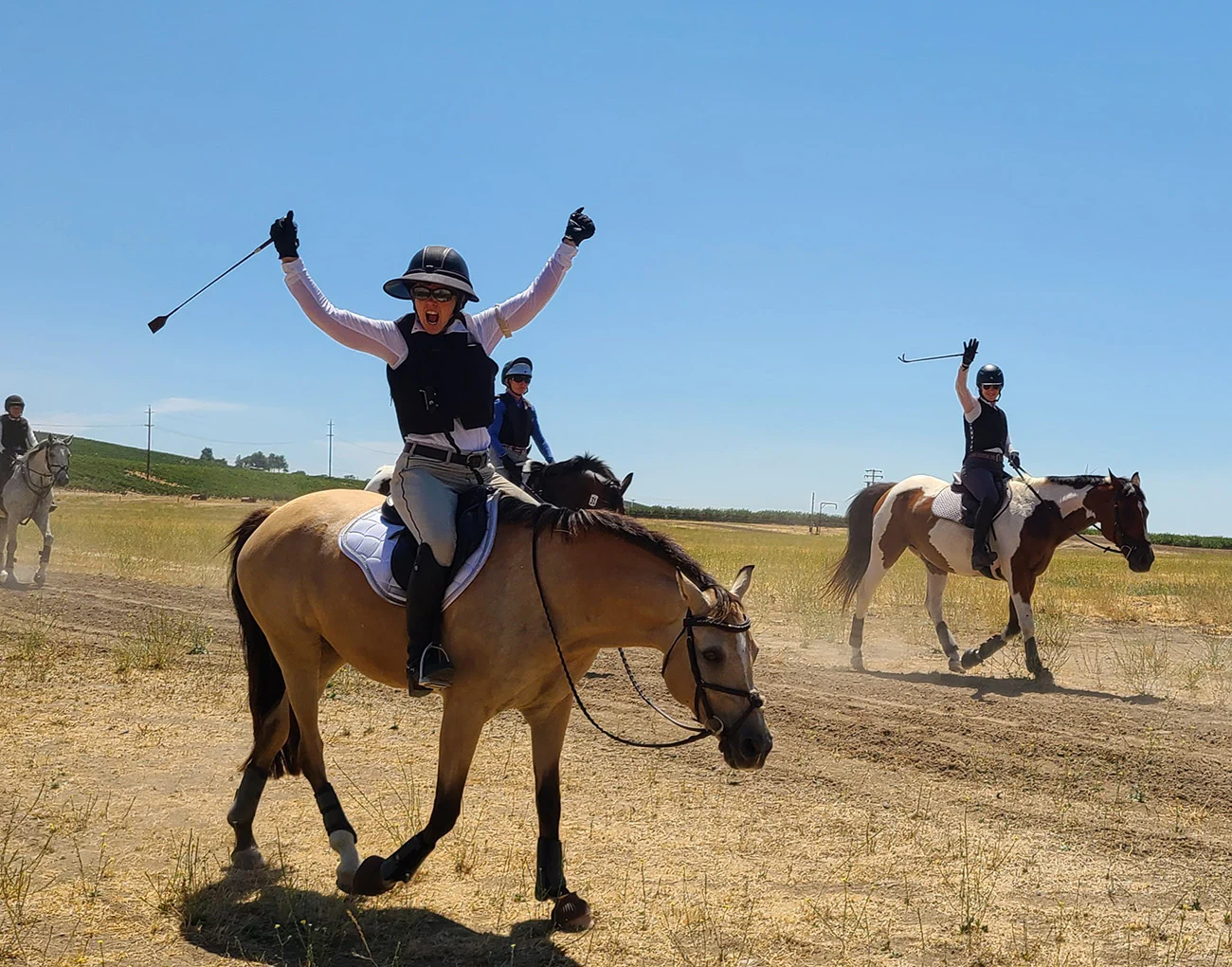
Needless to say, I was genuinely sad to see the trailers depart at the end of our time together.
As for “the Ernas,” there’s a tension between us that we’ll probably always have to be conscious of when it comes to being each other’s riding companions, so the chance for us to ride together in an environment that ultimately fosters camaraderie over competition was something we both needed. We’re riding horses that we’ve spent a lot of time in the weeds with, so we tend to take our failures and successes quite personally. And as non-professional trainers, we don’t always have the vocabulary or the diplomacy to communicate to each other constructively about our rides.
But now at the very least, we know how to spot when we’re having a successful ride, and help each other replicate that. Plus, since we’re so often riding together, seeing the other campers rally around us as individuals was a reminder that it is possible to support each other’s goals without losing our own ground.
We also navigated a tricky gas station situation with our four-horse rig, and when we high-fived after making it out of that station in one piece, it felt like a real breakthrough. Like any partnership, ours will take time, adjustability, and tactful communication, but there’s definitely a lot of potential.
Erna L. Adelson is a writer and filmmaker who lives with her family in Ramona, California. She and her off-the-track Thoroughbred, Sophie, are learning how to event together.





